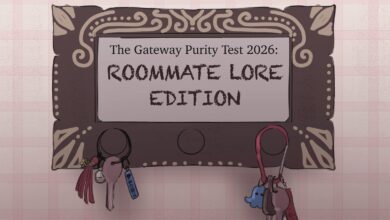How metal music shows compassion towards survivors of trauma
Metal musicians tell victims they're not alone
 Supplied
SuppliedOne of the many things that disgusts me about our society is the way we treat the trauma of others. We tend to ignore it, saying it’s not our problem. As a result, survivors can’t speak freely. They feel abandoned and invisible.
Metal music mitigates that feeling. By singing about trauma and the feelings associated with trauma, metal musicians tell survivors they are not alone. They tell survivors that someone understands them.
Metal music raises awareness about many types of abuse. For example, “Down with the Sickness” by Disturbed is about an adult who experienced child abuse. The chorus and verses are about a person who is filled with hate. Then, for the bridge, the lead singer screams, “And when I dream / … No mommy don’t hit me / Why do you have to hit me like that, mommy / Don’t do it, you’re hurting me.”
Not only does the song remind people child abuse happens, it demonstrates one of the ways a person can carry trauma into adulthood. The effects of child abuse on adults are rarely discussed. It falsely gives the impression that the remnants of that trauma magically disappear at a certain age. “Down with the Sickness” narrates the anger an adult may feel for having their childhood innocence stolen.
Additionally, “Down with the Sickness” allows survivors to be angry. Society forces survivors to be sad — the angry ones are ignored. Survivors are forced to forgive and forget. Yet “Down with the Sickness” legitimizes that anger. Its lyrics include, “You’ve woken up the demon in me,” “It seems like all that was good has died / And is decaying in me,” and “Open up your hate and let it flow into me.” The song encourages anger with its fast tempo and loud instrumentation — not to mention the amazing drum roll at the beginning. The song rejects society’s attempts to pigeon-hole survivors.
Anger is not the only emotion metal music covers. Korn and Papa Roach also discuss depression. In “Give Me Back My Life,” Papa Roach describes the feeling beautifully: “I don’t want to breathe, I don’t want to die / I can’t feel, I’m paralyzed / … I can’t breathe, I can’t fight / I don’t want to feel like I’m alive.”
And in “Falling Away From Me,” Korn tells survivors it’s okay to feel suicidal: “You flirt with suicide / Sometimes that’s OK.” While society berates suicidal people by calling them weak, Korn legitimizes their feelings. Both Korn and Papa Roach make suicidal people feel understood.
Finally, metal songs criticize society’s tendency to ignore trauma. In “Dead Cell,” Papa Roach calls out people for ignoring survivors when they speak out: “Seizin’ this opportunity to speak / I’m saying something / Don’t turn your fuckin’ cheek.” That’s what survivors want to say when their words fall on deaf ears. Papa Roach calls out society for being heartless: “Do you have emotions; is your heart freezin‘?” It’s a fair question — forcing survivors to feel alone is a cruel thing to do.
If you’re a survivor who wants to feel empathy and sympathy, I recommend you check out metal music. Finding people who react kindly and compassionately is hard. Many will look away. Others will react in a way that makes the pain worse. However, if you turn to metal, you won’t be disappointed. There are many bands singing about many issues. You’re guaranteed to find a few songs that meet your needs.




